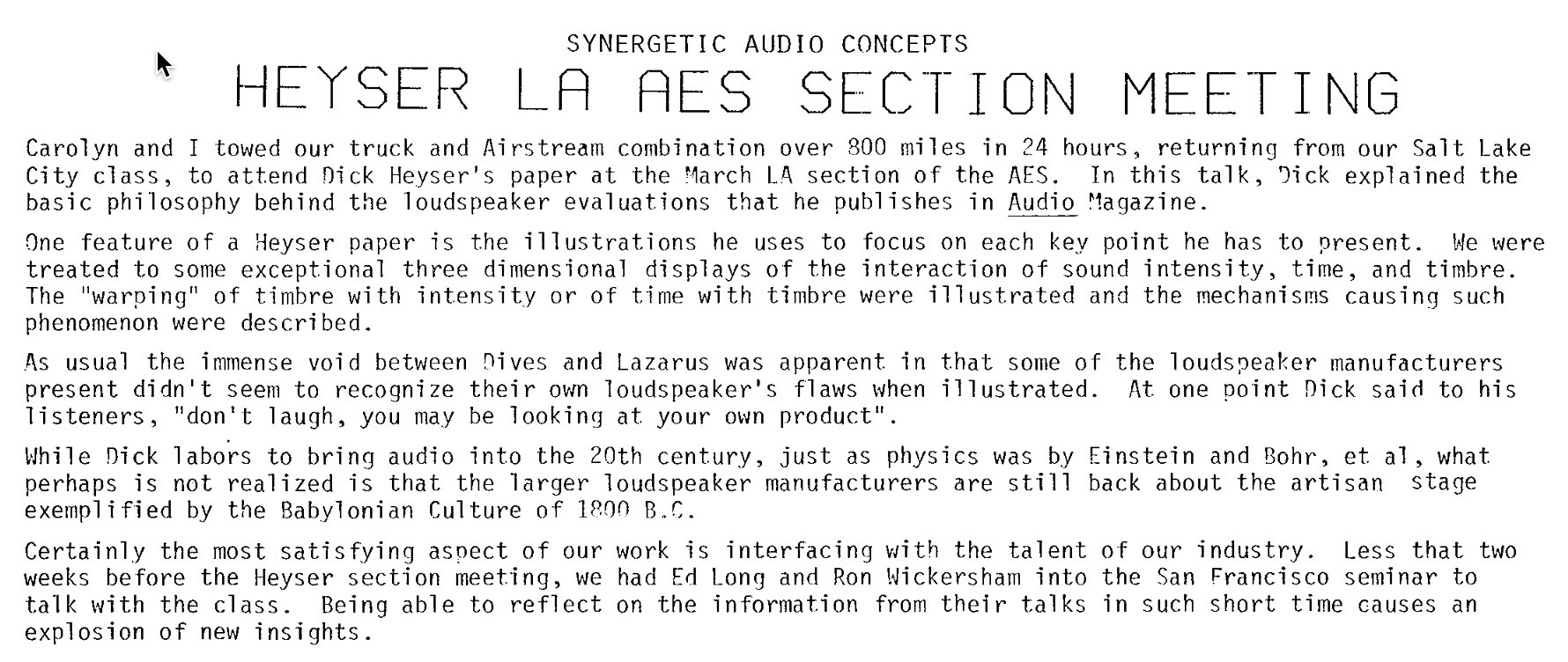On the other hand, it is a wide arc from (a) sensorial detection of a 'signal' to (b) making some sense of it, the 'information'. ( I had communication theory in school at the age of 12. Maybe I got it wrong. ) The detail, as explicated before is in 'meaning' territory**. Detail is in the mind, not in the machinery. So it is uterly subjective. That's why I objected against the use of that term here.
I swore I wasn’t going to jump into this, but here goes.
What you are talking about is a completely different aspect of hearing and the auditory process. Things like Nyquist response theory and the brain being able to fill in “detail.” There are numerous other examples of how humans process sound in the the brain. Those can vary from person to person, or they can vary depending on the content of what is being heard. The control for that is the same speaker/headphones are used.
You are 100% correct, there are numerous controlled scientific studies on audio perception (a lot of it for hearing aid development) that make clear that the brain is processing that information and can fill in information (call it “detail” if you would like).
You are focusing on what the brain does with that signal when it arrives (sound waves hit ear drums) and is processed by the brain and there is a perception. Same signal (song) from same speaker. It could be single piano notes. Open double bass strings being plucked. Human voice (which is where all of this started so you could hear and understand someone on the other end of the line). Eardrum to areas of brain that process sound is what you are talking about.
That’s not what this thread is about and not the sense that “detail is being used.” This thread is concerning itself with whether any changes can be made to the Loudspeaker (or individual transducers) that will result in the output (sound) being perceived in general, as either more “life like” or more pleasant, or without masking, or a dozen other subjective criteria.
So if you want to be on the same page as everyone here, this is what you do. Pick a song, any song, but one with some bass and some high end. Play that song on your smartphone with your ear to your phone. Then put phone on table and play it through the speaker phone speaker. Then play that song through a decent set of bookshelf speakers, and then if you have them, play the song on your full range floor standing system.
Listen in as quite a place as you can find. Jot a few things down that you heard that were different from one to the other. Did you hear something you didn’t hear in the previous listen. Was the sound better or worse than previous listen?
If all of those devices sound exactly the same to you, no differences, then congratulations, you are blessed with a brain that can process and fill in details regardless of the source and have great sound. But they don’t sound the same, and we all know that.
However, if you are like the rest of us, you hear more information(“detail”) when you go from the ear phone of your phone to the speaker phone to the book shelf to full range floorstanders You have also conducted an experiment where you controlled for the processing of your brain - same signal/song through 4 different sources of sound waves.
Which get us to what this thread is about.
Are there any improvements to loudspeaker (transducers) that will result in more information being able to be perceived/processed by the brain, or emit less of something that the brain perceives as unpleasant (noise/types of distortion)?
If you have a deep interest in how the brain processes sound, music, and all things associated with that there is a whole section on psychoacoustics where there are discussions on what brain is doing, what’s really there, what isn’t, etc.
This particular topic just isn’t concerned with the processing of the signal by the brain. It about the characteristics of that signal, and components of that signal, and if there is a ways to go to improve that signal for audio. If you want to use a different word than “detail” that’s fine, pick your own word.

